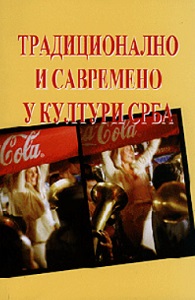Потрошња и идентитети у савременој Cрбији - Народне представе о богатству и сиромаштву
Consumerism and Identities in Contemporary Serbia - Folk Perceptions of Wealth and Poverty
Author(s): Ildiko Erdei
Subject(s): Customs / Folklore, Cultural Anthropology / Ethnology, Culture and social structure , Evaluation research, Transformation Period (1990 - 2010)
Published by: Етнографски институт САНУ
Keywords: Anthropology of Consumption; wealth; poverty; folk performances; Knjaževac and surroundings;
Summary/Abstract: The paper gives a broad outline of propositions for a research of folk perceptions of wealth and poverty within the framework of a wider research program investigating goods consumption in contemporary Serbia. Its introductory part spotlights the history of research work related to consumerinsm , and the basic issues and concepts forming up the theoretic grounds for consumerism research in anthropology. Consumerism emerged as a separate subject of research in the late 1970s with the publication of “ The World of Goods”, a book by Mary Duglas and Baron Isherwood, and was further established as such through several important books published during the 1980s. The characteristic feature of anthropological approach to the research of consumerism is the emphasis on its social and cultural aspects, and an observation of the symbolic and expressive qualities of consumerism . The paper reviews the most important concepts in the formative period of consumption anthropology, particularly the theoretic questions raised by Mary Duglas, Arune Apaduran and Daniel Miller. This is followed by a brief survey of works and topics which would make up the domestic (Serbian) ethnology/anthropology of consumption. The second part explains the meaning and usage, both in this paper and in the whole body of research, o f the key notions: wealth, poverty, folk perceptions. The closing part of the paper identifies several issues ensuing from a brief field research o f the folk perceptions o f wealth and poverty in the neighborhood of Knjaževac during 2002, and suggests possible directions of further work. The fieldwork has shown that the investigation of prosperity, of material and symbolic wealth, of labor as value, of traditional forms of succession and of ways of acquiring new riches can reveal the cultural perceptions of Knjaževac area dwellers and serve as an indication o f the social and cultural changes that are currently under way.
Book: Традиционално и савремено у култури Срба
- Page Range: 173-196
- Page Count: 24
- Publication Year: 2003
- Language: Serbian
- Content File-PDF

